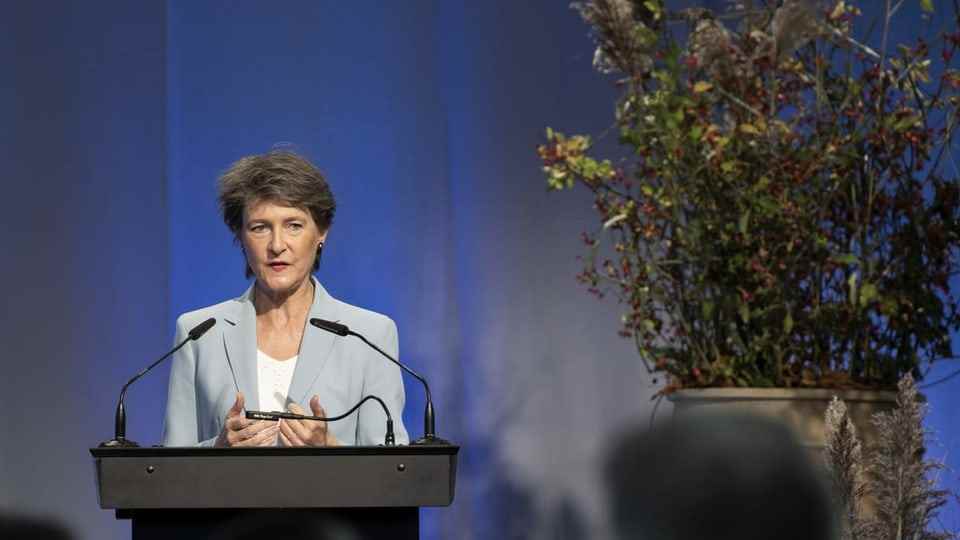Federal Councilor Simonetta Sommaruga, who is resigning at the end of the year, also had the climate under her control for four years as UVEK boss. With the CO2 law, it suffered a significant defeat in mid-2021. She then did what she could and the current mood is now increasingly in favor of her ideas, says political scientist Georg Lutz.
SRF News: Was the vote on the CO2 law in 2021 Sommaruga’s biggest defeat?
Georg Lutz: It was definitely the biggest turning point. Sommaruga had taken over the uvek when the energy course had already been set. The nuclear phase-out was decided, but the energy strategy and the energy law under her predecessor Doris Leuthard were also accepted by the people in 2017. Sommaruga had to implement this – with the CO2 law as the core, which then narrowly failed.
How much did the defeat for the Federal Council have to do with Sommaruga itself?
You can’t usually explain victories and defeats in votes with individual members of the Federal Council. The main reason was that the incentive tax did not win a majority among the people. In particular, the FDP was unable to rally its supporters behind it. But it was perhaps also one of Sommaruga’s weaknesses that she was not able to convince voters to a large extent, especially in other political camps. That didn’t help in this voting campaign.
After the CO2 law, the Federal Council, and with it Sommaruga, opted for a new strategy – without new taxes, but with incentives for more climate-friendly technologies. How promising is that?
Sommaruga has certainly learned from this that after defeats you shouldn’t come back with the same thing again. She has very pragmatically excluded the controversial core items and continued with the potentially majority-capable areas. For example in the expansion of renewable energies.
Time has now played in their favor. With the Ukraine war, the prices for many fuels have risen massively. This has given rise to an understanding far into the bourgeois camp that one should not rely on cheap fuels from abroad, but should continue to develop energy production at home. That’s probably Sommaruga’s point of view too, and she would have had a good basis here to push it further.
To what extent was Sommaruga able to set accents in the climate dossier?
After the great defeat with the CO2 law, Sommaruga was able to push ahead with the various reforms in smaller areas thanks to her tenacity and her dossier. It has already achieved certain successes in the current year. She could have continued that if she hadn’t resigned.

Legend:
Environment Minister Simonetta Sommaruga at the launch event “Exemplary Energy and Climate” in the 2021 to 2030 phase on October 19, 2021 at the Thun weapons site. The civil federal administration, the DDPS and 13 other actors are behind the initiative.
Keystone/Peter Schneider
Movements such as the climate strike criticize that politicians are still acting far too slowly in environmental policy and also blame Sommaruga for failings. Is the criticism justified?
There is global warming and the pressure to take action. At the same time, in Switzerland in particular, direct democracy is often found in everyday political life, where majorities are needed. Without majorities for further measures, you have to look for other ways, because that’s how Swiss democracy works. You can not blame Sommaruga as a mistake.
Raphael Günther conducted the interview.
